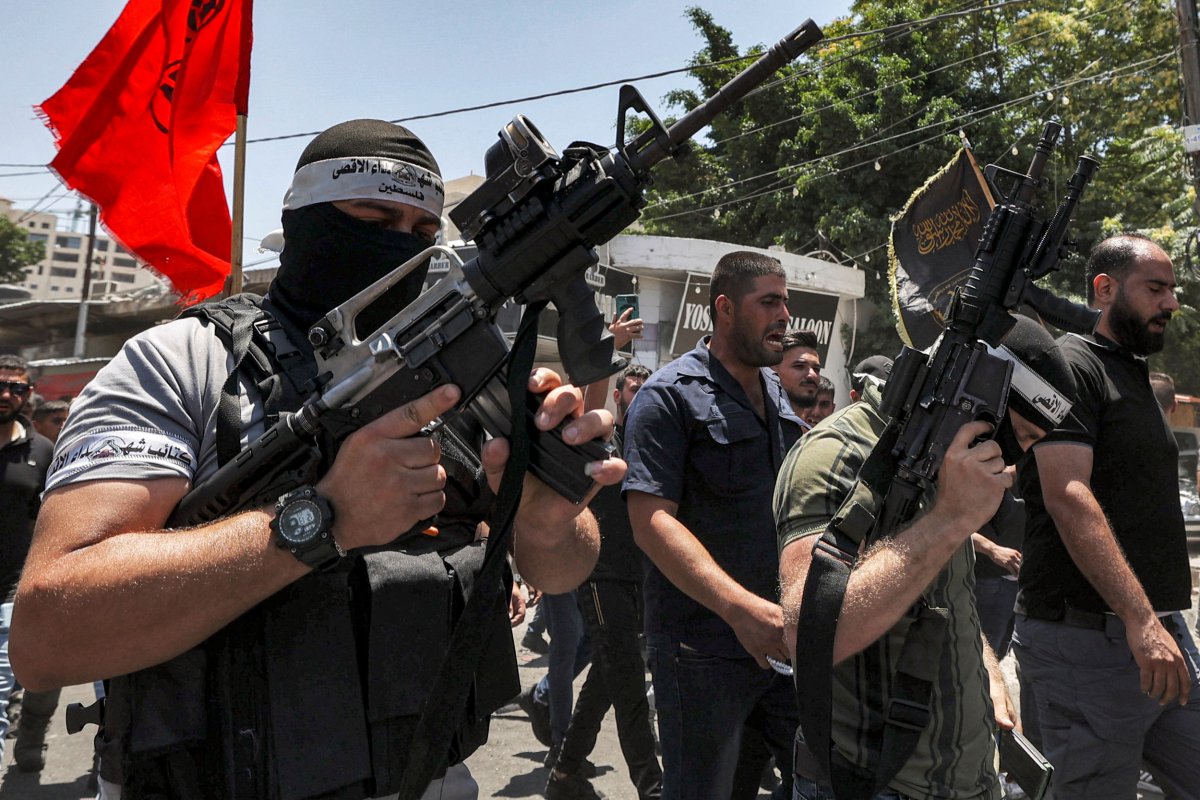Although Israel's army left Jenin on Tuesday after two days spent attacking terrorist infrastructure, the cycle of nonsense attacking Israel's action has just begun.
"Israel pulling out of Jenin but the cycle of violence continues," the CBC proclaimed.
"The impunity that Israel has enjoyed for its acts of violence over decades, only fuel and intensify the recurring cycle of violence," the UN's Human Rights "experts" intoned.
In the Washington Post, the former diplomat Aaron David Miller proclaimed more colorfully yet predictably that Israeli and Palestinians are "trapped in a bloody, volatile cul-de-sac."
In fact, Israel's surgical strike was totally-justified, long-in-the-making – and potentially game-changing.
In Jenin, Israel was cutting out tumors, not "mowing the lawn"—the popular metaphor explaining Israel's periodic Gaza clashes. While they sometimes recur, lethal growths must be removed. The "tumors" included hundreds of weapons confiscated, multiple bomb-making factories destroyed, and two terrorist command-and-control centers eradicated. One booby-trapped, cramped, half-mile by half-mile enclave harbored all this firepower, striking distance from Israel's largest city, Tel Aviv, and its capital, Jerusalem. Americans would never abide terrorist mega-centers in New Haven, Connecticut, 70 miles from New York, or in Richmond, Virginia, 90 miles from Washington, DC.

Despite more than 1,000 soldiers entering that once impenetrable area, only 12 Palestinian militants died in combat. Hundreds fled because hunting them wasn't the main mission. The Israel Defense Forces wanted to neutralize this killers' casbah embedded among civilians—one weapons cache was even hidden underneath Jenin's al-Ansari mosque.
Characteristically, most news sites ran photos of destroyed Palestinian cars, not seized homemade bombs, rifles, and mortars. Similarly, Doctors Without Borders and others criticized the "Military bulldozers" which "destroyed multiple roads leading to the Jenin refugee camp, making it nearly impossible for ambulances to reach patients." This spin ignored the eight Israeli soldiers recently injured by a roadside bomb in Jenin. Bulldozing the streets saved lives—while sending the message that these crimes don't pay.
Perhaps the most glaring omission boosting the "cycle of violence" talk came in "background" stories mischaracterizing Jenin as a perpetual terror center. Reporters skipped back to April 2002, when 23 Israeli soldiers died neutralizing Jenin's terrorist infrastructure. What they didn't say was that, freed of those terrorists, Jenin prospered. Thanks to the Palestinian Authority's security cooperation with Israel, Jenin's Palestinians enjoyed some calm, while few Jenin-based terrorists menaced Israelis.
As Zina Rakhamilova wrote in the Jerusalem Post, many Israeli-Arabs shopped in the city and many Jenin residents worked in Israel. By 2018, the Israeli army's "security evaluation of Jenin" was "relatively benign," and only one IDF battalion patrolled.
Unfortunately, COVID-19 devastated Jenin's economy, just as the Palestinian Authority started losing control. Backed by millions of Iranian dollars, Hamas, Islamic Jihad, and smaller terrorist groups infiltrated Jenin. After trusting the PA's security for years, by the time the IDF realized that terrorists had reconquered Jenin, a dramatic raid was necessary.
For more than a year, the IDF has been planning to return to Jenin, eradicate the death factories, and restore some deterrence. That is why, while the conventional wisdom blames this operation on Israel's "most right wing government," Israel's opposition leader, Yair Lapid, praised this "justified action against terrorist infrastructure." When a BBC anchor told former prime minister Naftali Bennett that "Israeli forces are happy to kill children," Bennett bristled. "No Israeli mom wants to send their boy into Jenin," Bennett said. "We do it because we've got no choice." He explained: "We are not targeting civilians. They are only targeting civilians." The IDF was already training for this raid when Lapid and Bennett governed. They may detest today's coalition, but like most Israelis, they understand this need for self-defense.
Such subtleties muddy the one-sided narrative of oppressive Israelis again persecuting helpless, innocent Palestinians. Most outrageously, Palestinian apologists ignore the way Palestinian militants terrorize their fellow Palestinians. Cowering behind civilians and civilized norms, Palestinian thugs recruit teenagers to keep prosecuting their uncompromising war against Israel's existence by killing civilians—with 28 Israeli victims in 2023 alone.
In short, cycle-of-violence talk makes the Arab-Israeli conflict look unchanging and unsolvable, ignoring Israel's peace progress with Egypt, Jordan, the United Arab Emirates, and Morocco. And it plays into oversimplifications of oppressive Westerners forever oppressing benighted Easterners—while negating Jews' indigenous ties to their Middle Eastern homeland. We should resist being conned by distortions and caricatures that demonize America's true ally, Israel, while violating the optimism and nuance so essential to healthy democratic debate.
Professor Gil Troy is an American presidential historian, and, most recently, the editor of the three-volume set, Theodor Herzl: Zionist Writings, the inaugural publication of The Library of the Jewish People.
The views expressed in this article are the writer's own.
Uncommon Knowledge
Newsweek is committed to challenging conventional wisdom and finding connections in the search for common ground.
Newsweek is committed to challenging conventional wisdom and finding connections in the search for common ground.
About the writer
To read how Newsweek uses AI as a newsroom tool, Click here.






